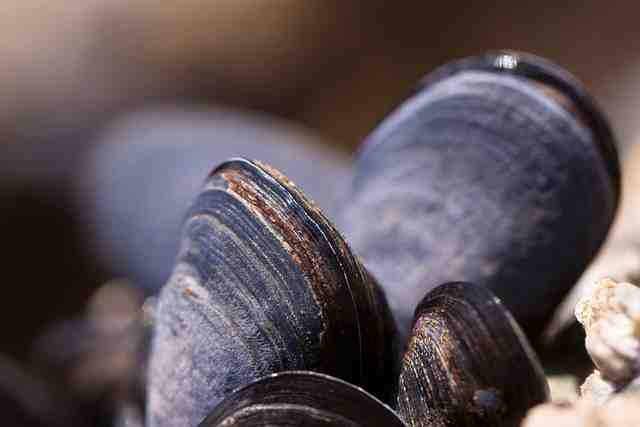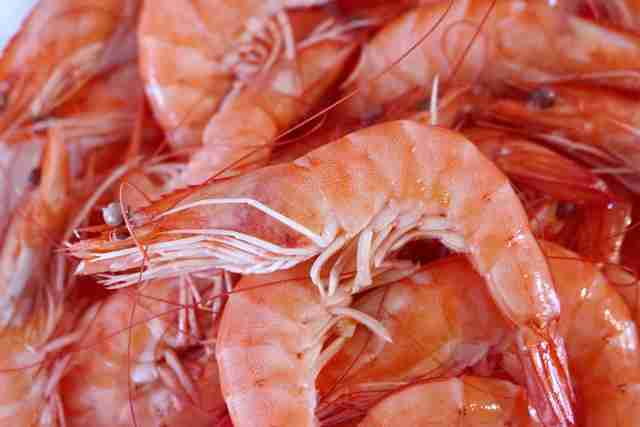Do Mussels Feel Pain? What Science Says!
Mussels, along with clams and oysters, are some of the most popular shellfish out there. If you’ve tasted all three of them, you will agree they have something in common – the flavor and softness.
It may come as a shocker to you to discover that many vegans don’t see mussels as actual animals and eat them occasionally. As a result, it’s often asked whether they feel pain or not.

Do mussels feel pain?
No, mussels do not have the ability to feel pain. This is because their nervous system is not well developed enough to interpret pain, at least not in the traditional sense that humans and other advanced animals do.
This is generally the case with several other shellfish.
Also, mussels don’t have a brain. Instead, they have an uncentralized nervous system, which basically enables them to react to their environment.
To make it clearer, especially in comparison to humans – humans process and interpret pain using their nervous system. Just like humans, mussels also have a nervous system, but theirs is very rudimentary and cannot process pain and other emotional experiences. In addition, they do not have a brain, which is required to interpret pain.
NB: “Mussels” is a general name used to describe freshwater water and marine bivalves. These organisms are biologically classified under the phylum Mollusca.
Do mussels feel pain when cooked?
When you cook mussels, their physiological responses are more likely reflexive rather than indicative of pain as higher animals experience. As earlier indicated, mussels lack a nervous system capable of experiencing pain in the way more complex organisms do.
Cooking them causes muscle contractions and tissue changes, but it’s not interpreted as pain in the human sense.
You’re probably thinking, is cooking mussels also considered cruelty in some places? Well, you can cook your mussels in any place in the world. It isn’t considered as cruelty.
Mussels are eaten in many parts of the world as they are believed to be very nutritious. They provide you with omega-3 fatty acids, which enhance your brain functionality and strengthen your joints. They also provide you with lean protein, zinc, and many other nutrients.
READ MORE: Do Scallops Feel Pain?
Do mussels have feelings?
Mussels do not have feelings, just like many other shellfish. This is because of their uncentralized nervous system.
You might be wondering what an uncentralized nervous system means.
Unlike mussels, humans have a central nervous system. This means that they have a series of neurons or nerve cells and a central brain that interprets emotions, pain, and other external stimuli.
Mussels, on the other hand, have a series of nerve cells or ganglia scattered throughout their body but do not have a centralized brain. As a result, they do not have feelings.
Do mussels have brains?
We mentioned earlier that mussels do not have a centralized nervous system; therefore, they lack a brain. Despite having a brain in the traditional sense, studies show that they do respond to light, sounds, and water currents.
Mussels are not the only sea creatures that don’t have a brain. Other animals in this category include sea anemones, sea urchins, jellyfish, sea cucumbers, starfish, sea sponges, sea lilies, corals, clams, sea squirts, oysters, and so on.
Why are mussels so strong?
Despite their small size, mussels are considered to be strong animals. This is because they can cling to rocky coastlines with an iron grip. Mussels are strong because of the unique layout of protein and metal ions in their bushy “beards.”
These “beards,” also known as byssal threads, are made up of 50–100 individual fibres. Surprisingly, these beards, which contain nutritious fibers, are taken off by chefs before the mussels are cooked.
Do mussels have nerves?
Absolutely! Mussels have a nervous system that is made up of nerves. Although it’s not as developed as the nervous system in humans, it’s enough for them to carry out their life activities.
The rudimentary nerves are responsible for their reflex responses to different stimuli, which include light and sounds.
How is pain measured in mussels?
It is practically almost impossible to measure pain in mussels since we believe they do not feel pain. They don’t have the complexity to feel emotions. The response mussels give to stimuli is purely reflexive. This means that they generally avoid substances that seem strange to them in order to ensure their survival.
To experience pain, an organism needs to have nociceptors which can also be called pain receptors. They are a group of sensory neurons that are widely distributed in almost all parts of the body. These receptors are responsible for sending noxious stimuli to the brain to interpret pain. In mussels, both brains and nociceptors are absent, making it practically impossible for them to feel pain.
Is it ethical to eat mussels?
Yes, it is ethical and healthy to eat mussels.
There has been a lot of controversy about eating mussels as a seafood. Some people believe that vegans can eat mussels, while others are against vegans eating it.
In my opinion, true vegetarians are against eating animals and animal products. Mussels are animals, making it unethical to the vegetarian culture.
However, as long as you’re not a vegetarian, it is completely ethical to eat mussels.
Conclusion: do mussels feel pain?
To conclude, mussels lack a centralized nervous system and brain, which are typically associated with the capacity for pain perception in more complex animals. Instead, they have a simple nervous system consisting of ganglia and nerve fibers.
This limited nervous system allows them to respond to environmental stimuli but does not suggest a capacity for consciousness or subjective experience.
Many researchers argue that these animals likely do not experience pain as humans or other more advanced animals do because they lack the neural complexity required for such experiences.
Their responses to potentially harmful stimuli, such as closing their shells when disturbed, are thought to be more like reflex reactions.
READ MORE: Do Octopus Feel Pain?





